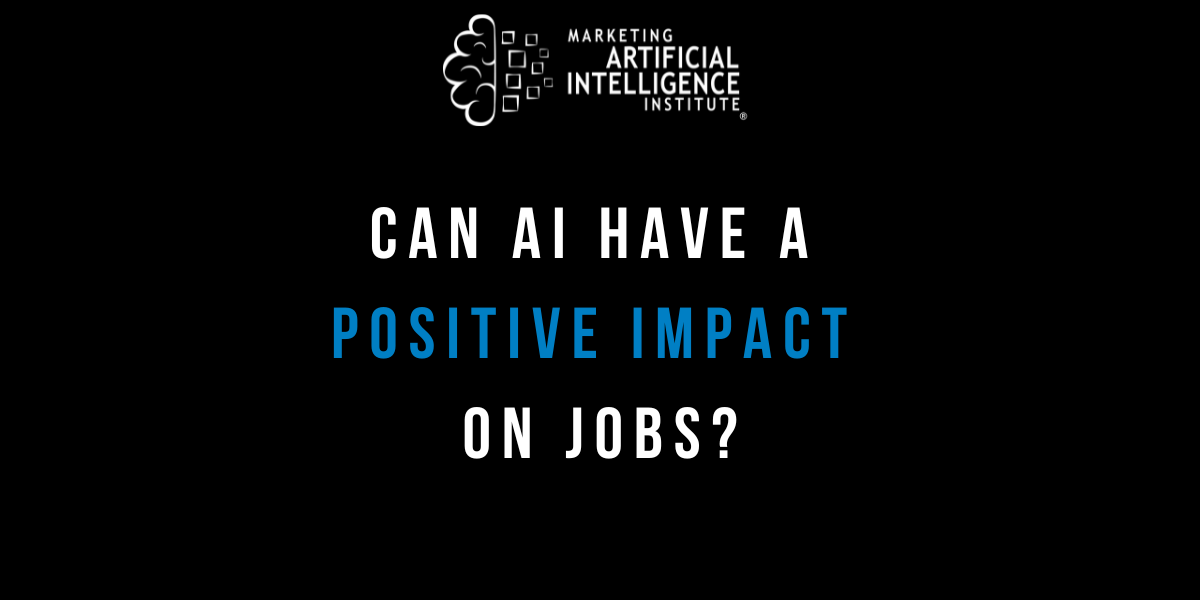A recent article from top experts predicts AI will have a positive impact on employment—but that’s not the whole story.
A new Brookings Institution article from some top economists and researchers explores the potential impact of AI, specifically large language models, on the economy and knowledge workers.
The researchers claim that large language models “not only make workers more productive but also increase the rate of innovation, laying the foundation for a significant acceleration in economic growth.”
Furthermore, they predict a massive impact on the workforce, saying:
“We expect millions of knowledge workers, ranging from doctors and lawyers to managers and salespeople to experience [...] ground-breaking shifts in their productivity within a few years, if not sooner.”
While the researchers acknowledge the technology’s risks, they form a largely positive view of AI’s impact on the workforce, counteracting commentary that says AI will result in large-scale unemployment.
Are we really on the cusp of an economic boom thanks to AI?
On Episode 47 of the Marketing AI Show, I spoke with Marketing AI Institute founder and CEO Paul Roetzer to take a closer look at their argument.
- The argument is positive, but the data might not be. “I actually looked at this and thought they tried really hard to convince themselves that [AI] wasn’t going to be massively disruptive,” says Roetzer. “But all the data seems to imply the opposite, that it’s going to be really painful.” Some of the data points the researchers cite are stark. They discuss 49% of the workforce having half or more of their job tasks performed by AI. And that large language models could impact up to 80% of the workforce. This could be very good for productivity, says Roetzer. But what happens to the workers who are displaced or not hired in the first place thanks to those productivity gains?
- Part of the problem is the difficulty in modeling AI’s impact. Economists use historical models to make predictions. But there may not be models that parallel the rate of change and disruption about to happen, says Roetzer. He says it became apparent reading through the article that even the smartest economists had no real idea how to model this. “It felt like they were grasping at straws for how to project out the impact this was going to have.”
- That means we have to accept the opposite argument might be true. The data doesn’t seem to support a necessarily positive outcome. In fact, Roetzer thinks there’s a solid chance the opposite argument is true. “I think there’s a greater than 50% probability that we lose millions of jobs over the next two years,” he says.
- But no one has the answer, which is why you need to embrace AI. “A lot of really, really smart people are trying to figure this out, and no one seems to have the answers yet,” says Roetzer. That means you need to prioritize embracing AI regardless. Figure out what it means to your role. Help others at your organization figure it out. That’s the best bet, no matter what the employment outlook looks like.
The bottom line: Even the smartest people in the world don’t yet know how AI will impact employment, so workers need to be proactive and take their AI development into their own hands.
Don’t get left behind…
You can get ahead of AI-driven disruption—and fast—with our Piloting AI for Marketers course series, a series of 17 on-demand courses designed as a step-by-step learning journey for marketers and business leaders to increase productivity and performance with artificial intelligence.
The course series contains 7+ hours of learning, dozens of AI use cases and vendors, a collection of templates, course quizzes, a final exam, and a Professional Certificate upon completion.
After taking Piloting AI for Marketers, you’ll:
- Understand how to advance your career and transform your business with AI.
- Have 100+ use cases for AI in marketing—and learn how to identify and prioritize your own use cases.
- Discover 70+ AI vendors across different marketing categories that you can begin piloting today.
Mike Kaput
As Chief Content Officer, Mike Kaput uses content marketing, marketing strategy, and marketing technology to grow and scale traffic, leads, and revenue for Marketing AI Institute. Mike is the co-author of Marketing Artificial Intelligence: AI, Marketing and the Future of Business (Matt Holt Books, 2022). See Mike's full bio.



